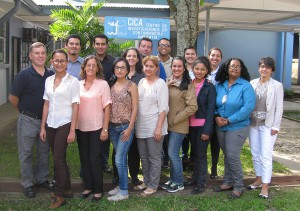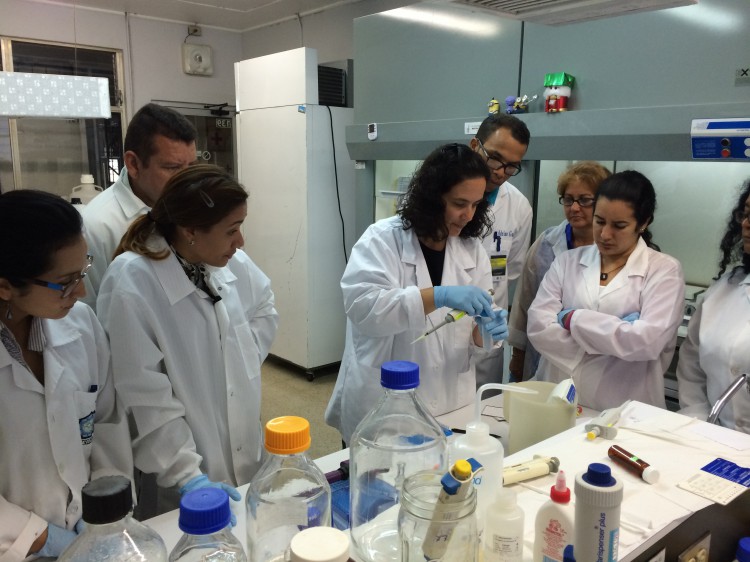Regulatory scientists from Colombia, Costa Rica, Cuba, El Salvador, Dominican Republic, Guatemala, Nicaragua, Panama and Venezuela completed two weeks of formal training for toxin detection using methodologies developed by NCCOS. The course of study focused on rapid detection of toxins responsible for paralytic shellfish poison (PSP) and ciguatera fish poisoning (CFP) at the Centro de Investigacian en Contaminacian Ambiental (Center for Research in Environmental Pollution) last month in San Jose, Costa Rica.

Harmful algal blooms (HABs) produce toxins responsible for PSP and CFP presenting a severe threat to seafood consumers and coastal economies in the U.S. and Central American countries sharing the Caribbean Sea and Pacific Central-American Large Marine Ecosystems. NCCOS’s innovative detection techniques, called receptor binding assays (RBAs), can help keep seafood tainted by these toxins off of the dinner table. The paralytic shellfish toxin RBA is already widely accepted nationally and internationally, while the ciguatera fish toxinRBA provides a promising technique for a contaminant that is notoriously difficult to detect.

This technology transfer activity is central to a largerInternational Atomic Energy Agency(IAEA) technical cooperation program. The current four-year regional project, “Designing and Implementing Systems for Early Warning and Evaluation of the Toxicity of Harmful Algal Blooms in the Caribbean Region,” facilitates the transfer of NCCOS toxin detection methodology. It was initiated by representatives of environmental, academic and fishery institutions from 12 Caribbean and Latin American members of the Intergovernmental Oceanographic Commission (IOC) of UNESCO.
NCCOS scientists have conducted eleven international training courses involving more than 30 countries over the past fifteen years. This project is supported by the IAEA as part of a NOAA/IAEA Practical Agreement. Countries adopting this method benefit from having a safe food supply and increased economic growth through the export of fisheries products.
For more information, contact tod.leighfield@noaa.gov or tina.mikulski@noaa.gov.
